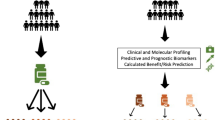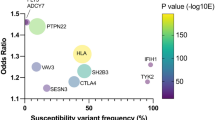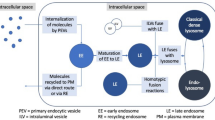Abstract
Recent studies in mice have provided strong evidence for a modifier gene that is capable of effecting the expression of the mouse equivalent of familial adenomatous polyposis (FAP). A candidate gene has been proposed, namely secretory phospholipase A2 (sPLA2). Increased tumor number in mice was correlated with low levels of sPLA2 expression and the presence of truncating mutations within the sPLA2 gene. In an attempt to determine whether any genetic alterations in the sPLA2 gene were associated with the expression of FAP in man, we investigated the genetic structure of sPLA2 in 97 polyposis coli patients presenting with various disease phenotypes, and its expression in 8 FAP patients displaying markedly different disease characteristics. In the current study no inactivating mutations in the sPLA2 gene were identified, suggesting that human sPLA2 is not associated with phenotypic variation in FAP.
Similar content being viewed by others
Author information
Authors and Affiliations
Additional information
Received: 25 March 1996 / Revised: 9 April 1996
Rights and permissions
About this article
Cite this article
Dobbie, Z., Müller, H. & Scott, R. Secretory phospholipase A2 does not appear to be associated with phenotypic variation in familial adenomatous polyposis. Hum Genet 98, 386–390 (1996). https://doi.org/10.1007/s004390050226
Issue Date:
DOI: https://doi.org/10.1007/s004390050226




